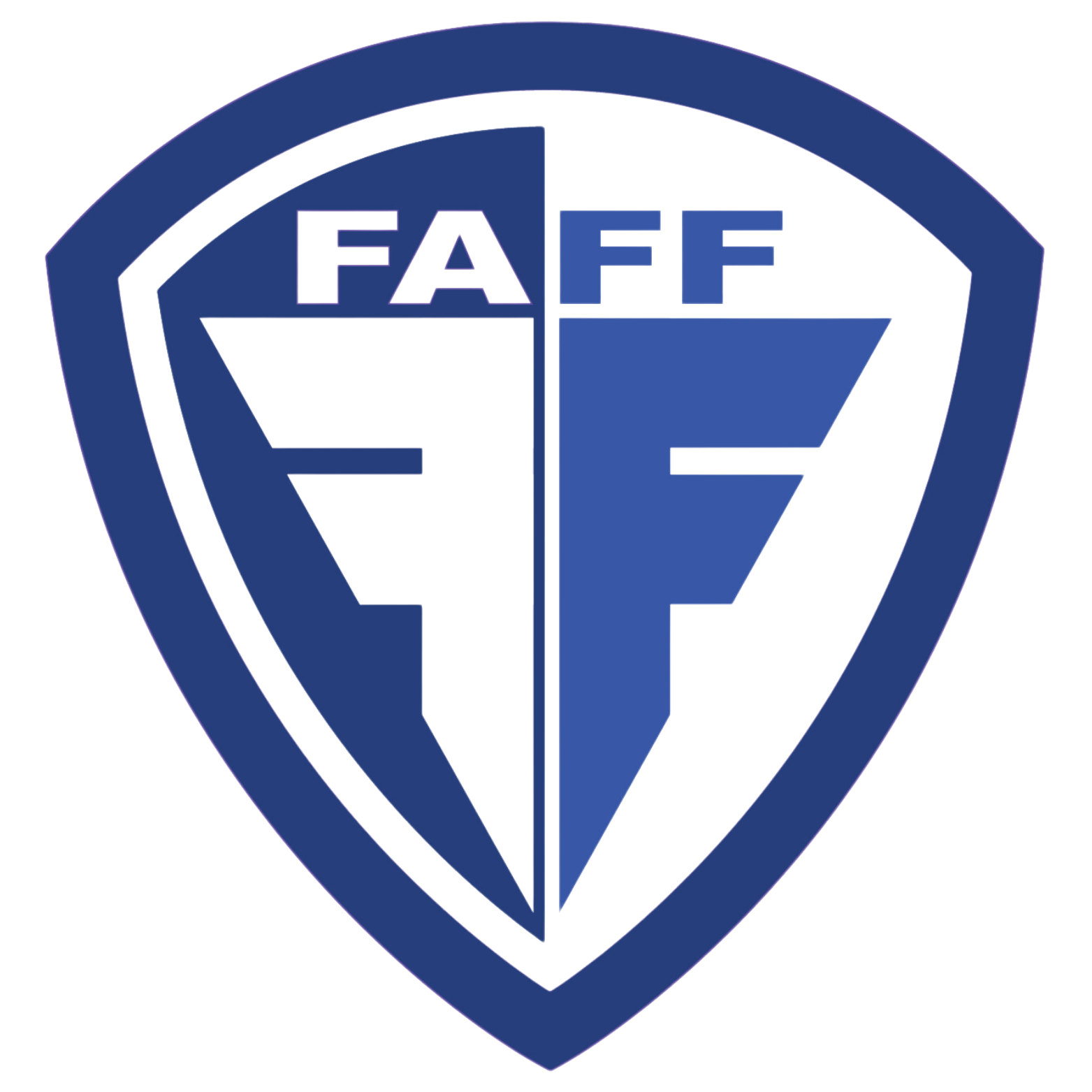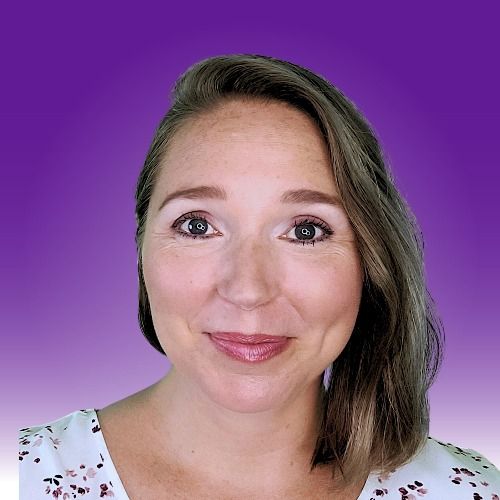Episode 120
State Tax Incentives and Streamlining Your Accounting
Episode 120 - State Tax Incentives and Streamlining Your Accounting
In this episode of the Faith and Family Filmmakers Podcast, Geoff welcomes back Margot Ransom, a seasoned production company accountant, to discuss her journey in the industry, the intricacies of tax incentives, particularly highlighting the Kentucky incentive, and the importance of proper accounting practices in film production. Ransom shares detailed insights on software tools and strategies to manage production budgets effectively, ensuring financial transparency and control, and offers practical advice for producers to minimize errors and avoid budget overruns in their projects.
Highlights Include:
- Welcome and Introduction
- Margot’s Journey into Film Accounting
- Transition to the Faith-Based Film Market
- Understanding Tax Incentives in Different States
- Spotlight on Kentucky and Wrigley Media Group
- Efficient Accounting Practices for Productions
- Using Emshee and Other Software Tools
- Payroll and Legal Considerations
- Cost Reduction Tips
- Communicating on Budget Overruns
- Final Thoughts and Contact Information
Bio:
Margot Ransom is the CEO and Founder of Prod Co Accountants.
With over 25 years of accounting experience in production finance, Margot understands business and accounting systems. She knows what information owners and producers need to manage the business effectively. She has spent her career bringing smooth, predictable financial operations to production companies.
An effective communicator, she can cut through the sometimes complex and mysterious world of accounting and translate it to simple English.
https://www.linkedin.com/in/margot-ransom-prodcoaccountants/
https://prodcoaccountants.com/
https://cashflowprojection.prodcoaccountants.com/opt-in-projection
https://tinyurl.com/SampleStreamerCOA
https://tinyurl.com/3PitfallsTrackingShowCosts
https://www.whoisnefarious.com/
https://tinyurl.com/LightsCameraKentucky
https://tinyurl.com/ExploratoryCallMargot
Screenwriters Retreat - Mexico: https://www.faffassociation.com/writers-retreat
Jaclyn's Book - In the Beginning, Middle and End: A Screenwriter’s Observations of LIfe, Character, and God: https://www.amazon.com/dp/B0D9R7XS9V
VIP Producers Mentorship Program https://www.faffassociation.com/vip-producers-mentorship
The Faith & Family Filmmakers podcast helps filmmakers who share a Christian worldview stay in touch, informed, and inspired. Releasing new episodes every week, we interview experts from varying fields of filmmaking; from screenwriters, actors, directors, and producers, to film scorers, talent agents, and distributors.
It is produced and hosted by Geoffrey Whitt and Jaclyn Whitt , and is brought to you by the Faith & Family Filmmakers Association
Support Faith & Family Filmmakers Our mission is to help filmmakers who share a Christian Worldview stay in touch, informed, and inspired. If you would like to assist with the costs of producing this podcast, you can help by leaving a tip.
Enter the Faith & Family Screenwriting Awards festival
Faith and Family Screenwriting Academy: https://www.faffassociation.com/
Script Notes and Coaching: https://www.faffassociation.com/script-services
Copyright 2024 Ivan Ann Productions
Transcript
Welcome to the Faith and Family Filmmakers Podcast.
Geoff:I'm Geoff and we're back again with Margot Ransom.
Geoff:Margot is a production accountant.
Geoff:Did I say that right, Margot?
Margot:A production company accountant.
Margot:Yeah, we do a production accounting, but we also do the corporate accounting for production companies,
Geoff:Yeah, and we, talked with Margot in our last, episode.
Geoff:So if you want to, hear her bio and hear a little more about her and what she does, you can go back and listen to that.
Geoff:But, what we didn't get into, Margot, I didn't ask you, you know, how you got to where you are today, As an accountant, obviously there's education and stuff involved, but then when it comes to working on film productions and with film production companies, that's a, that's a unique
Geoff:route to
Margot:Well, I've loved movies my entire life, and whenever I would go to the movies, I would want to be involved with them somehow, and I would, I'm a credit watcher, so I'd watch that credit crawl at the end as I go.
Margot:Director, no.
Margot:Actress, not interested.
Margot:Producer, I don't even know what they do.
Margot:But when it would come
Margot:to the accountants, I was like, yeah, I can do that.
Margot:I like numbers, you know.
Margot:So, God placed me in a career at, in TV production in the reality unscripted side of it.
Margot:And I was there for many, many years.
Margot:Worked my way up to a controller position at some large reality TV companies producing shows that everybody would have heard of.
Margot:And the last
Geoff:Uh huh.
Margot:I don't know, 10 or
Margot:20 years it's my bread and butter has been unscripted.
Margot:Like cooking shows, the travel shows, the home renovation shows, all those kinds of things
Margot:for discovery channel and learning channel.
Margot:And I loved it.
Margot:So when I hung out my shingle almost eight years ago now for my accounting firm, that was my specialty was unscripted and reality.
Margot:But as some of your listeners may know that.
Margot:segment of our industry has largely collapsed.
Margot:And so, I pivoted to film and in particular the faith, and Christian film market because that is where my heart is anyway.
Margot:Being in the secular TV industry, I've had to dodge a lot of landmines to not work on something that would be Put my soul in danger for no other way to put it, you know.
Margot:So, I go to these conferences where there are other believers and I just feel right at home.
Margot:And so I'm very happy to be here and I share all your mission to bring the gospel to the world.
Margot:So that's why I'm here.
Geoff:Well, you do share the mission because, none of it can happen without you, so I, I think you are an important piece of that puzzle.
Geoff:So thank you.
Geoff:Let me ask you a question that, it, it's probably a big one that gets asked a lot, and that is with regards to tax incentives and, which states are, some may be obvious and maybe some less so, but which states are, are great to work in with regards to tax incentives?
Margot:I love that question.
Margot:You hear a lot about Georgia.
Margot:I'm going to
Margot:say that their tax incentive is 20 30 percent of the in state spend.
Margot:And it's, Transferrable non refundable tax credits.
Margot:So these are terms you want to know when you're researching what state to go into.
Margot:Tax credits, I don't know, some of you guys might know it, but maybe some not.
Margot:For example, if you have a million dollar project and you have a 25 percent tax credit, then you'll get a certificate from the state for 250, 000 for tax credit, but Many producers will never have a tax liability that large So those tax credits are bought and sold on the open market They might sell it to a big bank or something for 95 cents on the dollar And so when it says it's transferable that means that you are able to sell it so, everybody wins, the producer gets their 95 percent of this tax credit, or 90, whatever they negotiate, and the bank gets to pay less taxes, but as you might imagine, there's a lot of red tape and hassle associated with that.
Margot:a refundable tax credit means that you can, if you don't have that much of a tax liability, you can get a refund from the state.
Margot:that's Georgia, and Louisiana is 25 to 40 percent.
Margot:non transferable tax credit, and it's only partially refundable.
Margot:So there's these different layers, but I want to talk in particular about Kentucky, where we've been doing a lot of work with Wrigley Media Group.
Margot:I'm going to give them a little plug.
Margot:The Kentucky incentive is 30 to 35 percent.
Margot:It's a direct rebate and you can incentivize out of state crew at that lower 30 percent rate, but it's still very healthy.
Margot:And the reason I am just plugging Wrigley at every opportunity is they have taken it to a whole other level, because if you do your project with them, they will advance whatever the expected return is to the project.
Margot:For example, if you have a million dollar or ten million dollar, let's say, project and you're expecting a 30 percent return, you only need to come to the table with 70 percent of that budget.
Margot:Wrigley will fund the rest of it.
Margot:So obviously that's a huge savings of money that the producer needs to raise and it's really been a game changer.
Margot:and they're great people.
Margot:We love working with them.
Margot:So all hands down, Kentucky is in my humble opinion, the best incentive in the country, just by itself in a vacuum.
Margot:But then you throw in the secret sauce of Wrigley Media Group.
Margot:Call me for details, honestly.
Geoff:Yeah, well, actually, I would, like to ask, a little bit more on that.
Geoff:What do they
Margot:Well, Wrigley Media Group, it's a production company.
Margot:And before this tax credit was passed, it's my understanding that they did like educational videos and things like that.
Margot:But the founder of the company.
Margot:Ms. D. Wrigley.
Margot:She's one of the Wrigley family of gum fame that I may have mentioned.
Margot:She, wanted to get, go into it in a much deeper way, so she brought in executives from both coasts, heavy experience production executives.
Margot:They built this gorgeous 50, 000 square foot studio now, and they have the facilities, the post, and the crew, and Kentucky is just exploding with production.
Margot:So Wrigley Media does their own projects, but they also partner And they are a turnkey solution.
Margot:If you partner with Wrigley, Wrigley will form the LLC that applies for the incentive with the state, so the producer doesn't need to have any hassle with that.
Margot:It's completely turnkey.
Margot:And then Wrigley applies for the rebate at the end.
Margot:And then, um, In addition to that, they're your partner all along the way.
Margot:They set up all the back office, the accounting, the bank accounts, all that stuff, the producer just really needs to do what they do, which is create their project.
Margot:So
Margot:that's what they do.
Geoff:Wow.
Margot:It is
Geoff:So, when you said direct rebate, I'm assuming, or I should say it sounds like that means that the state gives that money in cash back to the company.
Geoff:It doesn't require you having a tax bill of that
Margot:That's exactly right.
Margot:It's not a tax credit.
Margot:It's a direct rebate.
Margot:You'll get a check at the end for the rebate for 35%, whatever in Kentucky spend, obviously is what they're talking about.
Geoff:Yes, of course.
Geoff:This is good information.
Geoff:I'm sure that there are listeners who would not have known this information either about Kentucky or about Wrigley because, both of those pieces of information, though they're interconnected, sound like they could be,
Margot:They're game
Margot:changers,
Margot:really.
Margot:I mean, if you
Margot:compare the Kentucky incentive, there are lists all over the internet of what are the tax incentives for film, and you can do your own comparison, but I just highlighted these three because you do hear a lot about Georgia, but as I mentioned, it's 20 to 30 percent, and it's a non refundable tax credit, but it is transferable.
Margot:You can sell it if you get it,
Margot:then it's just a hassle to deal with it,
Geoff:Yeah, I'm guessing that for most smaller productions, they would, have to use that transferable quality in order to
Margot:Yes, and many of the states have a minimum spend in the state to qualify for it.
Margot:I don't have any of those figures at the top of my head
Margot:because each one is different.
Geoff:I'd like to get into a discussion about the accounting process, for projects to minimize errors and ensure timely payouts and everything's kept on track.
Geoff:What can you tell us about that?
Geoff:What advice can you give?
Margot:my advice is going to be keep it simple and streamlined.
Margot:We use software that overlays, you can't see my hands, but I'm laying a hand over my fist, that overlays QuickBooks Online, and it produces industry standard cost reports that everybody needs to see.
Margot:We load your budget in there, and then It pulls and syncs with QuickBooks in near real time.
Margot:So the, strong advantages to that are, any tax accountant is familiar with QuickBooks online, and it's easily
Margot:understandable by the stakeholders, the investors, and everybody, but the production people, the line producer and
Margot:whoever is responsible for managing the budget can get the information that they need without getting into the general ledger.
Margot:Which, I don't want to get too much accounting speak, but they don't have to get into your QuickBooks because the information they need is in this other platform that's pulling the cost data from QuickBooks.
Margot:And the name of that software, if anybody wants to know, is Emshee.
Margot:That's spelled E M S H E E. And we use it for all our clients.
Geoff:So, let me just clarify, is that, the software that the production company or the line producer would use to organize and keep track of the spending for the production?
Geoff:Or is that just the interface between,
Geoff:you know, the production software and the, accounting
Margot:That's a great question.
Margot:Yes, the line producer will use it to manage the cost, but when they just open Emshee, there's a cost report in there that has the seven columns everybody's used to seeing.
Margot:There's the actual cost, there's the committed cost, there's the total cost to date, and then the estimated final cost, and then there's the budget column, and these are all.
Margot:segregated line by line, your camera crew, your audio, your caterer, the site rentals, all those things, like you would
Margot:expect a budget to be broken down.
Margot:So it has the budget and then there's an over under column, and there's an estimate to complete column.
Margot:I can't remember if I mentioned that, but so that estimate to complete column is the key one because that is an editable column right within the software.
Margot:Like if they say, Oh, we got rained out one day, we're going to go over on shoot days.
Margot:So they can.
Margot:make projections and it's a living document so they can see where they're going to be over and under at any time and of course the goal in that bottom line is to get them zero over or under budget to stay on budget but so they're not
Margot:compiling any costs they're just they have the actuals at their fingertips so that they can make decisions about where to allocate you know or not allocate more funds.
Geoff:So this is Emshee that
Geoff:you're
Margot:am,
Geoff:about?
Geoff:And can you
Margot:Sure, it's just like it sounds, E Edward, M Mary, S H E E
Margot:dot
Margot:com.
Geoff:Cool.
Geoff:Are there other softwares or
Margot:there are lots of
Margot:Uh, there are lots of them.
Margot:In my firm, we use two.
Margot:Bill.
Margot:com to pay the bills and the reason we do that is it syncs with QuickBooks online So once bill is entered in bill.
Margot:com it goes into QuickBooks Then once it's in QuickBooks, it will go to the cost report So this is key and it's the way I run my business every piece of data Every transaction is only touched one time it goes into this central hub or Bible if you want to call it that which is QuickBooks online
Margot:we use bill.
Margot:com to pay the bills and we also encourage our clients to get cachet cards, which are prepaid master cards designed for production.
Margot:They're free,
Margot:and there's actually a cash rebate, but it's very small, it's nothing to write home about, but still, they sync within our system, and that is spelled C A S H E T.
Margot:They're cachet cards.
Margot:We recommend all our clients.
Geoff:how, I know earlier you recommended against things like Venmo, and, debit cards.
Geoff:So how is this different from an accounting perspective,
Margot:That's a great question.
Margot:Well, with Venmo or debit cards, the accountant doesn't know the transaction has happened until they see it on the bank statement.
Margot:And by then, you're late getting it into the cost report.
Margot:If you're using Caché, those get into the cost report as soon as They're coded by the cardholders.
Margot:The cardholders will log into the system and they're going to see all their transactions in real time.
Margot:Either the cardholders or sometimes there's somebody designated on the production, such as maybe a production manager or coordinator, and they can just code it because since everything is speaking with QuickBooks Online, all the budget lines are in there.
Margot:They're in a pull down menu.
Margot:They don't have to know any of the accounts.
Margot:It will just be catering or costumes or set or whatever it is.
Margot:Those accounts will all be in there, so the cardholder or their designate can do the coding.
Margot:And then once it's coded, it just feeds into the cost report.
Margot:So again, every piece of data is only touched once, and it's getting in there
Margot:in real time.
Geoff:So cache is
Margot:That's what I meant to say.
Margot:Yes, it integrated.
Geoff:that makes a lot of sense.
Margot:We also integrate all of the major payroll companies, Rapbook, Revolution, Media Services, Greenslate.
Margot:We can work with all of them, so if you're running your crew just through accounts payable, which you can get away with on a smaller project, but legally and technically if they don't have their own tax ID number and their company, they should be on payroll.
Margot:But you know, A lot of these, of smaller producers, or sometimes they don't do that.
Margot:But I, can't advise them to not that.
Margot:I need to advise them that they should go on payroll.
Margot:You know, W
Margot:2 wages.
Geoff:is this just to clarify, are you referring to a production company with their employees or are you referring to
Margot:referring to
Margot:projects.
Margot:Yeah, the IRS has really cracked down on the production industry because back in the day, it was like the Wild West.
Margot:Everybody was paid as an independent contractor early in my career.
Margot:And that, didn't fly with the IRS.
Margot:So they've really cracked down, assessed some big penalties and people have learned their lessons.
Margot:Like the big producers understand this and they don't risk it.
Margot:They just put everybody
Margot:on payroll.
Geoff:so on a production, I mean it's only a short period of time, the actual production, uh, people would be actually put on payroll and paid as employees
Margot:Yes.
Margot:That's true.
Margot:Happens all the time.
Margot:For sure.
Geoff:Interesting.
Geoff:That sounds
Margot:it's, nobody wants to do it.
Margot:It's more expensive obviously, but you know, if you want to be a hundred percent safe.
Margot:That's what you do.
Margot:And it's just an especially on bigger project.
Margot:It's just accepted.
Geoff:Tell us how a producer can, protect themselves against, overruns.
Margot:As I've been kind of hammering home or the theme of everything I'm saying is visibility, right?
Margot:Visibility, clarity, and timeliness in reporting.
Margot:They can also negotiate with vendors ahead of time.
Margot:This might be part of the pre production process.
Margot:You know, say something
Margot:like, Hey, I can promise you X dollars in business if you will cut us a rate.
Margot:Right.
Margot:Or something like
Margot:that.
Margot:If you're going to be doing any licensing, any clips, for example, a lot of the big, clip houses will give you a bulk deal if you pay for a certain amount in advance.
Geoff:right
Margot:I don't know if that'll be applicable to a lot of your listeners, but I've seen that done.
Geoff:Yeah, and a lot of that what you just said is about keeping the cost down to begin with.
Geoff:It's gonna gonna
Margot:A hundred percent.
Geoff:But if you find that you're expecting to go over budget What does one do in that case?
Geoff:How do you communicate with the stakeholders and people involved so that everybody's kind of on the same page and knows what to expect?
Margot:a great question.
Margot:I'm a big believer in if you need to inform someone about a problem, you better have the solution at the ready.
Margot:So,
Margot:You know, for example, if you're gonna say, well, you know, we lost the cameras, we had to replace them or whatever the problem is.
Margot:so we're going to go over on this line, but we're going to make it up and spend less on this line.
Margot:And you just need to know that, maybe that will show up on the screen and maybe not,
Margot:lot of these decisions are creative decisions, right?
Margot:Like, where are you going to reduce the spend?
Margot:But maybe, you know, you just get a cheaper caterer, or they get granola bars for lunch, or I don't know, I'm just spitballing.
Margot:But, you just have to ideally have a solution to the problem, but make sure that they're
Margot:aware, so that they can have confidence in the business, that the producer's running, which a production is a business.
Geoff:Yes.
Geoff:That sounds like really good advice.
Geoff:Not just come to them with the problem, but uh, with a solution.
Geoff:There has to be a solution.
Geoff:Somebody's going to have to come up with a
Margot:Everything's figureoutable, yep.
Margot:They let somebody go early, a production manager, and maybe the line producer needs to code the receipts, or whatever it is, you know.
Geoff:Well, that's all really good information.
Geoff:I know we've got such a wide range of, filmmakers, not only different levels, but different areas of production and, different sizes of
Geoff:productions who are our listeners.
Geoff:And, I know all of them.
Geoff:need to properly account for their funding.
Geoff:So what you do is very important and, I'm really glad we got to not only hear your advice and your, information today, but also got to introduce you to our listeners because, I'm sure they need you.
Margot:Thanks, Geoff.
Geoff:Well, let's talk for a moment about how they can get a hold of you for more information and to maybe get into some more specifics about how you can
Geoff:help them.
Margot:Absolutely.
Margot:Really, the best way is just to go to our website prodcoaccountants.
Margot:com.
Margot:That's short for production company.
Margot:And there is a link on there to my calendar.
Margot:You can schedule a call.
Margot:It will ask you a few questions specific to your situation so that I can come to the call prepared.
Margot:you know, you
Margot:can also find me on LinkedIn.
Margot:That's Margo with a T, like escargot, ransom like kidnapping money.
Margot:on LinkedIn.
Margot:You can either, you can email me mransom at prodcoaccountants.
Margot:com, but really the best way is to schedule a call so that we can both be prepared for the meeting and I can make the best use of your time.
Geoff:Sounds good.
Geoff:And we'll get your contact information in our show notes as well, so that, if they're thinking back and want to find this information, it'll all be there for them.
Geoff:So,
Geoff:Thank you so much for
Geoff:joining us today and uh, for sharing.
Geoff:Well, thank you.
Geoff:And you.
Geoff:Thank you.
Geoff:We look forward to running into you again in a, a conference or film festival in the
Geoff:near future.
Margot:Sounds good.




